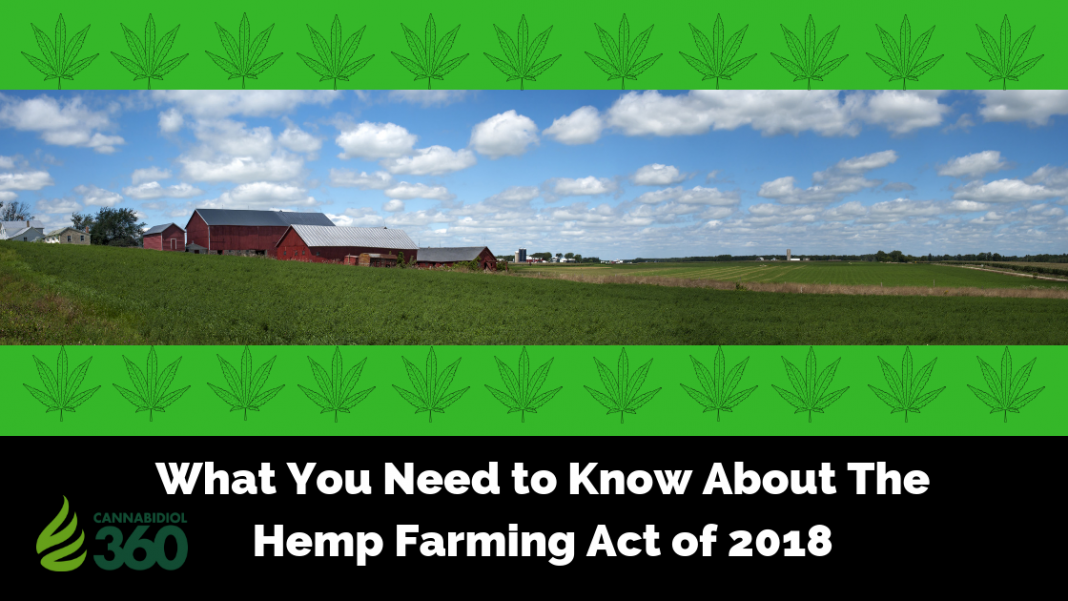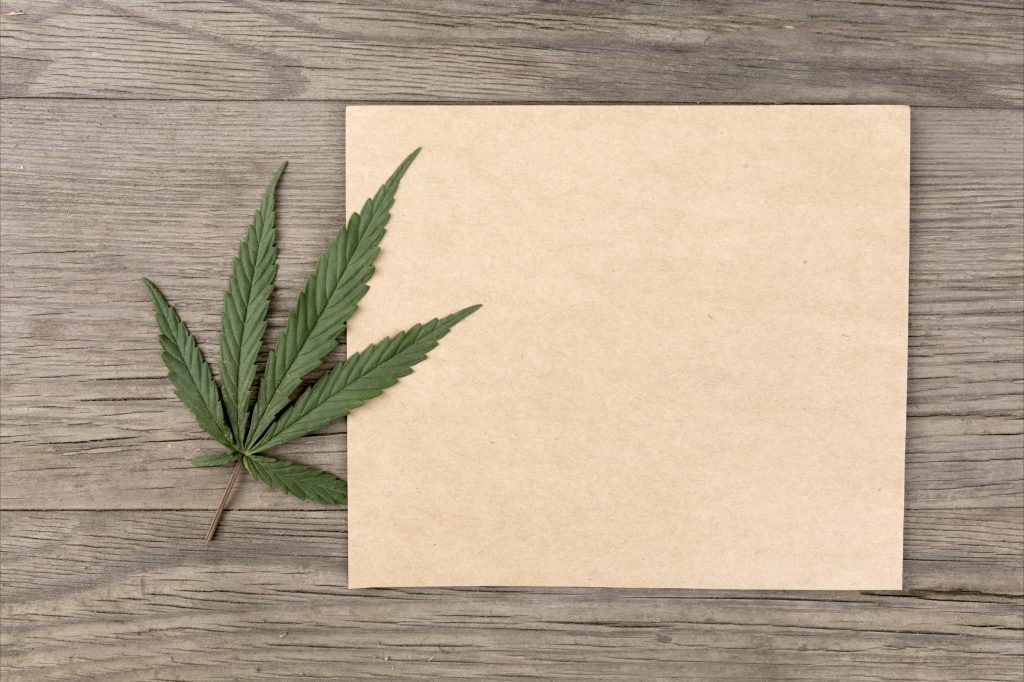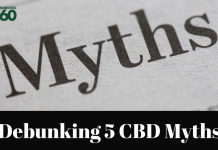
For the first time since 1970, hemp farmers may be able to legally cultivate their crops without federal restrictions.
Currently, Senator Mitch McConnell is working tirelessly to ensure that the Hemp Farming Act of 2018 gets approved once the 2014 Farm Act expires at the end of the month.
For restrictions on hemp cultivation to be lifted, House and Senate leaders must reach an agreement regarding their versions of the new Farm Bill.
While many pro-hemp activists are enthusiastic, it remains to be seen whether hemp becomes fully legalized.
As we all know, the legal status of hemp has been complicated for decades. Hemp enthusiasts hope that the bill is passed so that we can further explore the potential health benefits of CBD, a cannabinoid that naturally occurs in the hemp plant.
In recent years, CBD has become a widely popular natural alternative to many mainstream drugs and supplements. Researchers have examined the compound’s ability to treat neurological conditions as well as chronic pain.
Those who support CBD as a natural medicine claim that the compound can do everything from ease anxiety to kill cancer cells.
While research regarding CBD’s various health benefits is still in its infancy stage, many believe that this plant-based compound can dramatically change the healthcare industry as we know it.
The History of Hemp in the United States
To call cannabis’ relationship with the law complicated is an understatement. It all started with the Marihuana Tax Act of 1937.
Penned by anti-cannabis activist Harry Anslinger, this piece of legislation made it extremely difficult for the hemp industry to thrive.
The law required that heavy taxes would be placed on hemp farmers as well as physicians who prescribed cannabis products to their patients.
The Marihuana Tax Act of 1937 was passed after several years of anti-cannabis propaganda had made its way into the mainstream consciousness.
Many believe that William Randolph Hearst was largely behind the public’s growing concerns about cannabis.

The widely accepted belief is that Hearst wanted to put an end to hemp production because this natural substance was cultivated to produce paper.
Having invested large amounts of money into the timber industry, hemp production was eating into his profits.
In 1970, the Marihuana Tax Act of 1937 was repealed. In response, Congress passed the Controlled Substances Act, allowing the CSA to give cannabis a Schedule I classification. According to the CSA, cannabis had no known medicinal benefits and was an illicit drug.
The problem with this classification was that it applied to both hemp and marijuana, two different species of the cannabis plant.
Marijuana, as we all know, contains a high level of THC, a compound that alters a person’s state of mind. Hemp, however, contains less than 0.3 percent THC, meaning that it’s incapable of getting a user high.
The 2014 Farm Bill
 In 2014, President Obama signed the 2014 Farm Bill. This bill allowed hemp farmers to cultivate their crops for research purposes only.
In 2014, President Obama signed the 2014 Farm Bill. This bill allowed hemp farmers to cultivate their crops for research purposes only.
To be allowed to grow hemp, farmers had to obtain legal permission and comply with the individual state’s laws regarding the cultivation of cannabis.
The 2014 Farm Bill removed hemp from the list of controlled substances by acknowledging the differences between hemp and marijuana. Still, hemp farmers found it difficult to obtain the state’s permission to grow their crops.
Additionally, the bill still prohibited the production of hemp for commercial use.
The CBD Boom
What the 2014 Farm Bill did accomplish was the start of a boom in the hemp industry.
Because hemp farmers could now cultivate their crops for research purposes, many notable universities and medical researchers were able to analyze the numerous potential health benefits of CBD, a cannabinoid that is found within the hemp plant.
These studies are responsible for the current popularity of CBD within the natural health industry.
Researchers have made some incredible discoveries that support the argument that CBD is safe and beneficial to one’s health.
It has been discovered that CBD interacts with the body’s endocannabinoid system, supplementing it with cannabinoids that help your body maintain homeostasis.
Now that CBD has become so popular, natural health enthusiasts are able to purchase hemp-derived CBD products easily. People can purchase CBD tinctures, topical creams, capsules, candies and more.
However, the federal restrictions on the cultivation of hemp still makes it difficult for hemp farmers to manufacture their products for commercial use. However, a new piece of legislation may change that very soon.
The Hemp Farming Act of 2018
Kentucky Senator Mitch McConnell has been advocating for the full legalization of hemp cultivation for quite some time. He and a handful of other senators penned the Hemp Farming Act of 2018 earlier this year.
This bill would allow hemp farmers to cultivate their crops for commercial use rather than for research purposes only. The 2018 Farm Bill is intended to promote the CBD industry by emphasizing this particular cannabinoid in its language.
Currently, any extracts derived from the cannabis plant are automatically classified as marijuana.
However, this bill determines that extracts derived from the hemp plant are not illicit substances and are therefore suitable for commercial use.
According to this bill, hemp can be grown responsibly if it’s subjected to regular testing for THC levels. If the hemp that has been tested has 0.3 percent THC or less, it’s perfectly suitable for commercial use.
It’s no surprise that a senator from Kentucky would be behind this bill. Kentucky was one of the first states to see large profits from hemp cultivation after the passing of the 2014 Farm Bill.
Many speculate that McConnell has personal investments in the hemp farms across his home state.
McConnell’s interest in the hemp plant isn’t just about the CBD industry. He argues that hemp is an incredibly useful crop that can lower the costs of textile and paper manufacturing.
What’s Next for Hemp Farmers

The Hemp Farming Act of 2018 was passed by the Senate just a couple of months ago.
Now, hemp enthusiasts are eager to see if the House and the Senate can work through their differences regarding their versions of the bill to legalize hemp on a federal level. The 2014 Farm Bill expires in less than one week.
If the Hemp Farming Act of 2018 is passed by both the House and the Senate, CBD enthusiasts should expect to see hemp products reach new levels of mainstream success.
It has already been speculated that popular pharmacies such as CVS will try to cash in, selling CBD-infused creams and capsules next to popular over-the-counter medications.
The legalization of hemp could also mean that the medical industry would become more accepting of this plant-based health product. It may become more commonplace to receive a CBD prescription from a primary care physician.
What All This Means
With such a complicated history, it’s no surprise that many are confused about the legal status of hemp. However, those who are for the use of CBD and other hemp products believe that this natural substance will see new heights of mainstream acceptance as well as profitability within the next few months.












